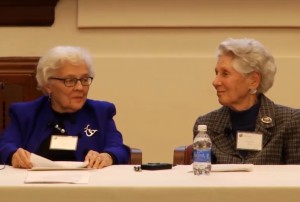Preliminary Opening of the Vernacular Archive of Normal Volunteers, 1940-2018
The Center for the History of Medicine is pleased to announce that the first portion of the Vernacular Archive of Normal Volunteers (VANV), 1940-2018 is now open to research.
VANV is a collection of oral histories, associated archival documents, and project records created and collected by Laura Jeanine Morris Stark to explore the lives of the first “normal control” research subjects at the Clinical Center of the United States National Institutes of Health (NIH) in Bethesda, Maryland who were recruited through NIH’s Normal Volunteer Patient Program. The Normal Volunteer Patient Program (renamed the Clinical Research Volunteer Program in 1995) began in 1953 as a program of the NIH and later operated through the NIH Patient Recruitment and Public Liaison Office. VANV interview subjects participated in the program from 1954-2002.
The collection includes oral history interviews (audio recordings and transcripts) conducted by Stark between 2010 and 2017 with individuals who were involved with the Normal Volunteer Patient Program (volunteers, scientists, and staff), along with archival documents from interviewees’ personal collections. It also includes digital duplicates of materials related to the Normal Volunteer Patient Program compiled by Stark from the special collections of organizations that were the sources of “normal volunteers” for the NIH Clinical Center. The materials from source organizations include photographs, correspondence, and clippings. The collection also includes records generated by, or pertaining to, the Normal Volunteer Patient Program collected by Stark through a first-time FOIA request and release from NIH as well as project administration records including templates for legal forms, interview instruments, ethics-review approvals, and grant proposals.
View VANV data files on the Harvard Dataverse.
A selection of VANV data files are currently open for research; access to some data files is restricted until the publication of Laura Stark’s book, The Normals: A People’s History, University of Chicago Press. Access to the restricted data files may be granted at the discretion of the author. Anyone with interest in viewing restricted files are warmly invited to contact Laura Stark at laura.stark@vanderbilt.edu

